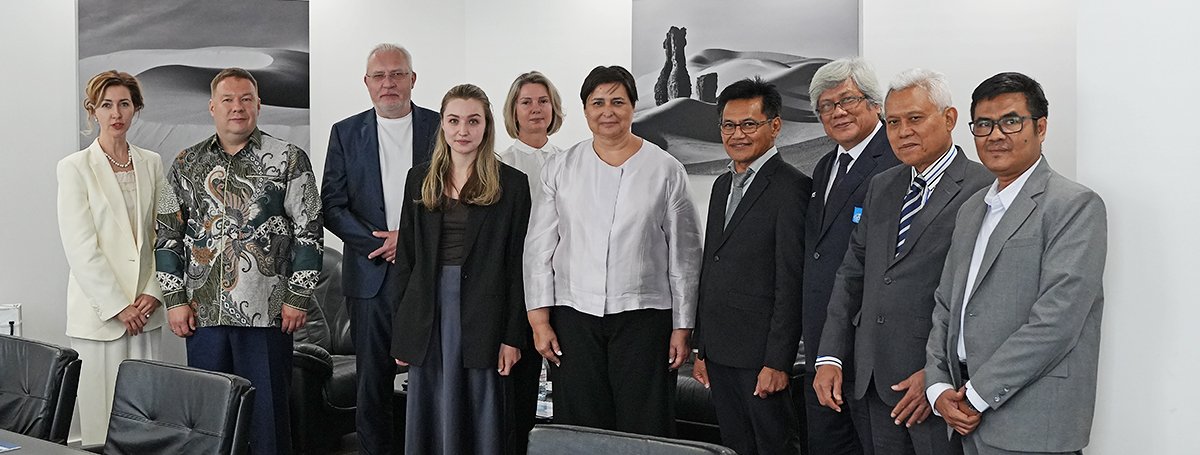They discussed strengthening cooperation in capacity building in the satellite communications industry. Intersputnik shared its extensive experience in implementing satellite projects and presented its views on the personnel policy and advancement of young professionals. Following the meeting, a memorandum of understanding was signed to support the capacity building in the field of space activities and satellite communications.
Intersputnik employees and their Indonesian colleagues agreed to identify possible forms of cooperation in the development of joint projects in the space and satellite industries. In addition, the partners will consider joint projects aimed at developing and supporting young talent, as well as exploring promising areas of collaboration between industry-focused educational institutions.
Indonesia is a key player in the satellite market of Southeast Asia and the Asia-Pacific region. For a country spread across approximately 17,000 islands in a seismically active and typhoon-prone region, satellite communications are the most effective — and in some areas, the only effective means of communication. Since launching its first telecommunications satellite in 1976, Indonesia has been actively developing its space programme, including efforts to bridge the digital divide and serve residents of remote regions.
Intersputnik views the Asia-Pacific region as one of the most promising for its activities. In early 2025, the Organization joined the Asia-Pacific Space Community Council (APSCC), a respected regional body uniting leading players in the Asia-Pacific satellite market. Intersputnik also cooperates with the Asia-Pacific Space Cooperation Organization (APSCO) and takes part in key industry forums such as the APSAT conference in Jakarta, Indonesia.
At the meeting organised with the assistance of the Office of the Education and Culture Attache of the Embassy of the Republic of Indonesia in the Russian Federation, representatives of Indonesian universities expressed interest in Intersputnik's initiatives – both its own and those conducted in collaboration with the International Telecommunication Union. These initiatives aim to support young professionals and training personnel for the satellite industry.
A successful example of such initiatives was the seminar “Space Activities in Modern Realities: Opportunities, Novelty, and Prospects,” held in February 2025 in Almaty, Kazakhstan, as part of Digital Almaty 2025, the largest innovation and technology forum in Central Asia.
As an intergovernmental organisation, Intersputnik is not limited in its international cooperation to working exclusively with Member Countries. The Organization is open to developing joint projects with any representatives of government, commercial, public, academic, and international entities that share a commitment to open, mutually beneficial and transparent cooperation in the field of satellite communications, aimed at bridging the digital divide and achieving the United Nations Sustainable Development Goals.

